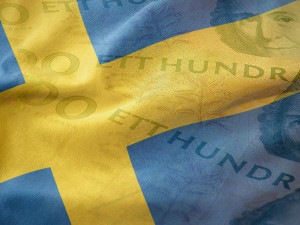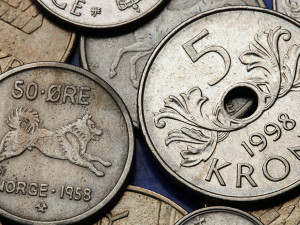
Currency manipulation most commonly refers to the practice of governments deliberately trying to influence their currency’s value in order to gain unfair trading advantages. This can take numerous forms, such as central banks buying or selling large amounts of their own currency to control its exchange rate. Sometimes competitive devaluation is pursued, in order to lower their currency’s value, therefore making their exports cheaper and imports more expensive. This leads to trade imbalances and economic tensions.
In today’s global economy, currency manipulation is an important concept to be familiar with, as it directly impacts international trade and investment flows. This affects everything from job creation to consumer prices. In times of geopolitical tension, currency manipulation can exacerbate economic disparity between nations. Recently, in June 2024, the US Treasury Department added Japan to a monitoring list, indicating their concerns with Japanese foreign exchange practices after the yen fell to a 38-year low against the dollar – a direct inquiry into potential currency manipulation. Through grasping the nuances of currency manipulation, we can better understand its implications in the context of current international economic discussions and tensions.
How Currency Manipulation Works
Currency manipulation can employ multiple tactics in order to influence the value of a currency.
Forex Market Intervention
If a country wants to devalue their own currency, it can sell large amounts of it to increase the supply, therefore lowering the value. Conversely, it can purchase large amounts to reduce supply and strengthen its value.
Monetary Policy Adjustment
One of the most common methods to influence currency value is to adjust interest rates. A lowering of interest rates can lead to a depreciation of the currency, as this typically decreases the return on foreign investment. Raising interest rates attracts foreign capital, increasing the currency’s value.
Quantitative easing is a strategy by which money supply is increased, stimulating the economy but potentially leading to currency depreciation.
Fiscal Policy & Trade Surpluses
By increasing export subsidies, or perhaps imposing tariffs on imports, governments can promote trade surpluses. A consistent, ongoing trade surplus can lead to a stronger currency. Recent scrutiny from the US on Vietnam’s trading policies were aimed at their significant trade surplus, leading to allegations of currency manipulation.
Communications
Through issuing public statements central banks can influence market perceptions about potential future currency price movements. Signalling intentions about future monetary policy or valuation can have indirect impacts. For example, if a central bank wants to enhance their export competitiveness, they might indicate a preference for a weaker currency.
Capital Management
Through imposing controls on capital inflows and outflows, countries can effectively regulate how much currency can be bought or sold. By limiting foreign investment or restricting capital outflow, governments are able to prevent excessive currency appreciation or depreciation. These techniques are often used in emerging markets where governments hope to stabilise their currency against speculative attacks.

Additional Reasons for Currency Manipulation
In addition to the economic reasons we’ve already explored including making exports cheaper and improving trade balances, further reasons for currency manipulation include:
National Interests
From a political and economic standpoint, governments might manipulate the value of their currency in order to achieve economic goals or political stability. It might be of political interest to maintain employment levels in key industries, prompting the use of currency manipulation to protect these sectors. It can also be used in retaliation – if a country believes its currency is being manipulated by another, it may do the same in order to protect its interests.
Financial Stability
During times of economic uncertainty, currency markets are often used to measure the extent of an economic shock or volatility. Governments might seek to stabilise their currencies in an attempt to maintain investor confidence.
Effects of Currency Manipulation
Implications of currency manipulation can reach far beyond domestic borders, having wider effects on the global economy.
International Trade
If a country is believed to be artificially distorting pricing in a trade, they may face retaliation in the form of tariffs or trade sanctions, building trade tension. This environment of competition may lead to what is often referred to as “currency wars”, where countries feel pressured to devalue their own currency to keep pace.
Global Consequences
These practices can contribute to instability in international markets – currency fluctuations can affect all kinds of investment decisions and economic forecasts. If a currency is manipulated over a long period of time, this can lead to a lack of trust, forcing investors to seek alternatives and consequently destabilise an economy.
Impacts on Consumers & Businesses
Currency manipulation can result in higher prices of important goods, affecting inflation in the manipulating country. Consumers will face higher costs and a reduction in purchasing power. Equally, businesses that rely on imported goods will also struggle with increased costs, affecting profitability and competitiveness.

Legal & Ethical Considerations
A topic of contention is the legality and ethics of currency manipulation, which are complex.
International Laws & Agreements
Direct currency manipulation is generally considered a violation of international trade agreements, governed by the World Trade Organisation (WTO). The International Monetary Fund (IMF) also discourages the manipulative practices that lead to unfair competitive advantages. The US Treasury lists criteria for identifying currency manipulators – considering factors such as trade surpluses and forex interventions.
Ethical Considerations
Many economists have argued about the unethical nature of currency manipulation due to its distortion of free market principles. By undermining fair competition, critics argue that it harms both the manipulating country and its trading partners. However, countries justify these actions as necessary in order to protect workers and economies in the highly competitive global market.
Once a country gets labelled as a ‘currency manipulator’, diplomatic tensions can arise. The US has had contentious relationships with countries such as China and Vietnam over allegations of currency manipulation, adding further complications to existing difficult relationships.
Conclusion
Currency manipulation remains a polarising and complex issue in today’s global economy. While it offers short-term advantages in boosting exports and the protection of local industries, it can lead to disruptions in international trade relations and spark economic instability and retaliation. It can be a useful tool of study in order to grasp its broader economic and political implications, maintaining relevance in ongoing currency disputes between the US and Japan, for example. By staying informed, businesses and consumers can better navigate challenges of an increasingly interconnected global marketplace.
As always, for currency news and insight into the ever-changing world of currency, make sure to stay up to date with our Expert Analysis, as well as our daily Market Commentary.
Caleb Hinton
Caleb is a writer specialising in financial copy. He has a background in copywriting, banking, digital wallets, and SEO – and enjoys writing in his spare time too, as well as language learning, chess and investing.



